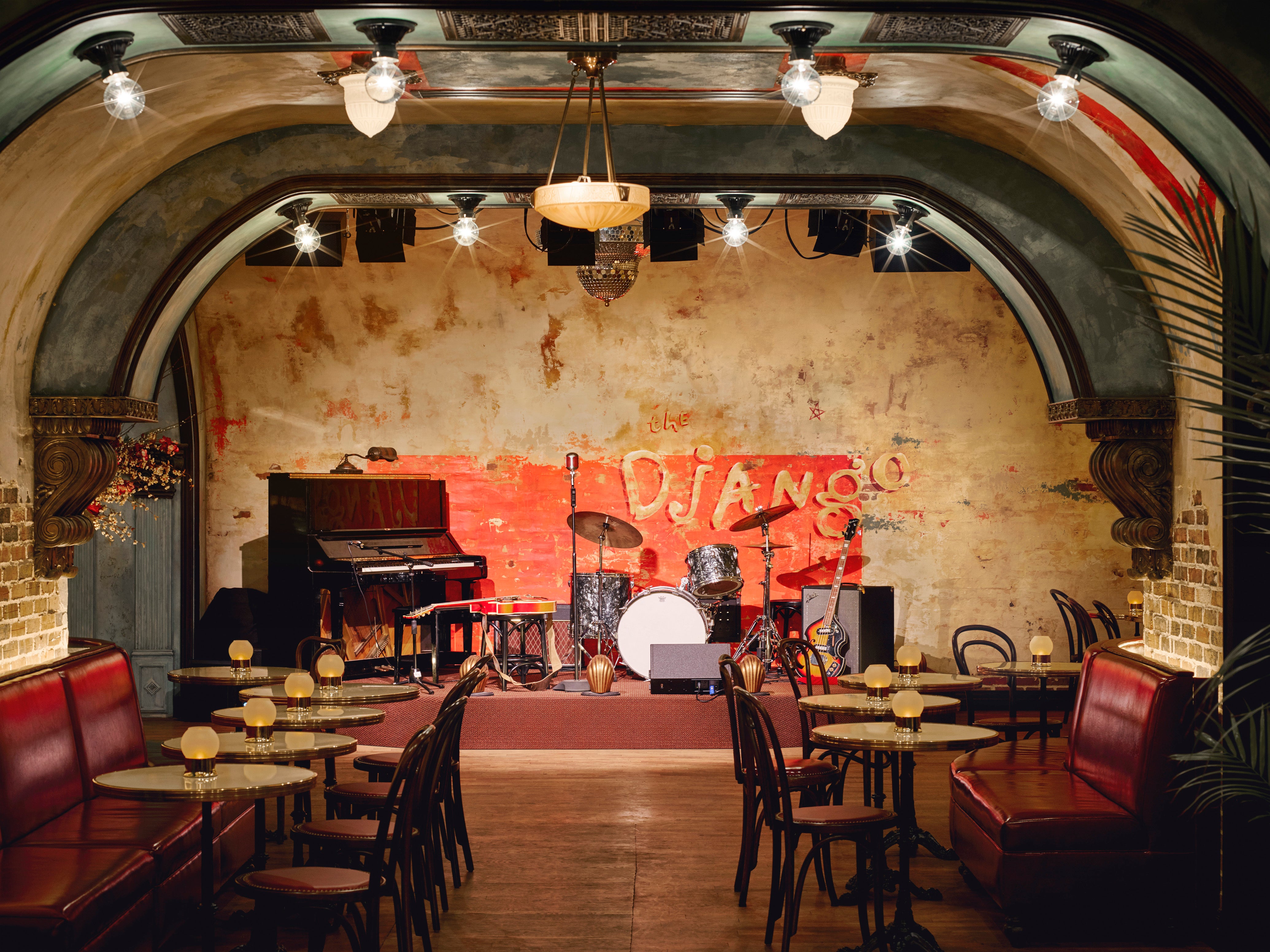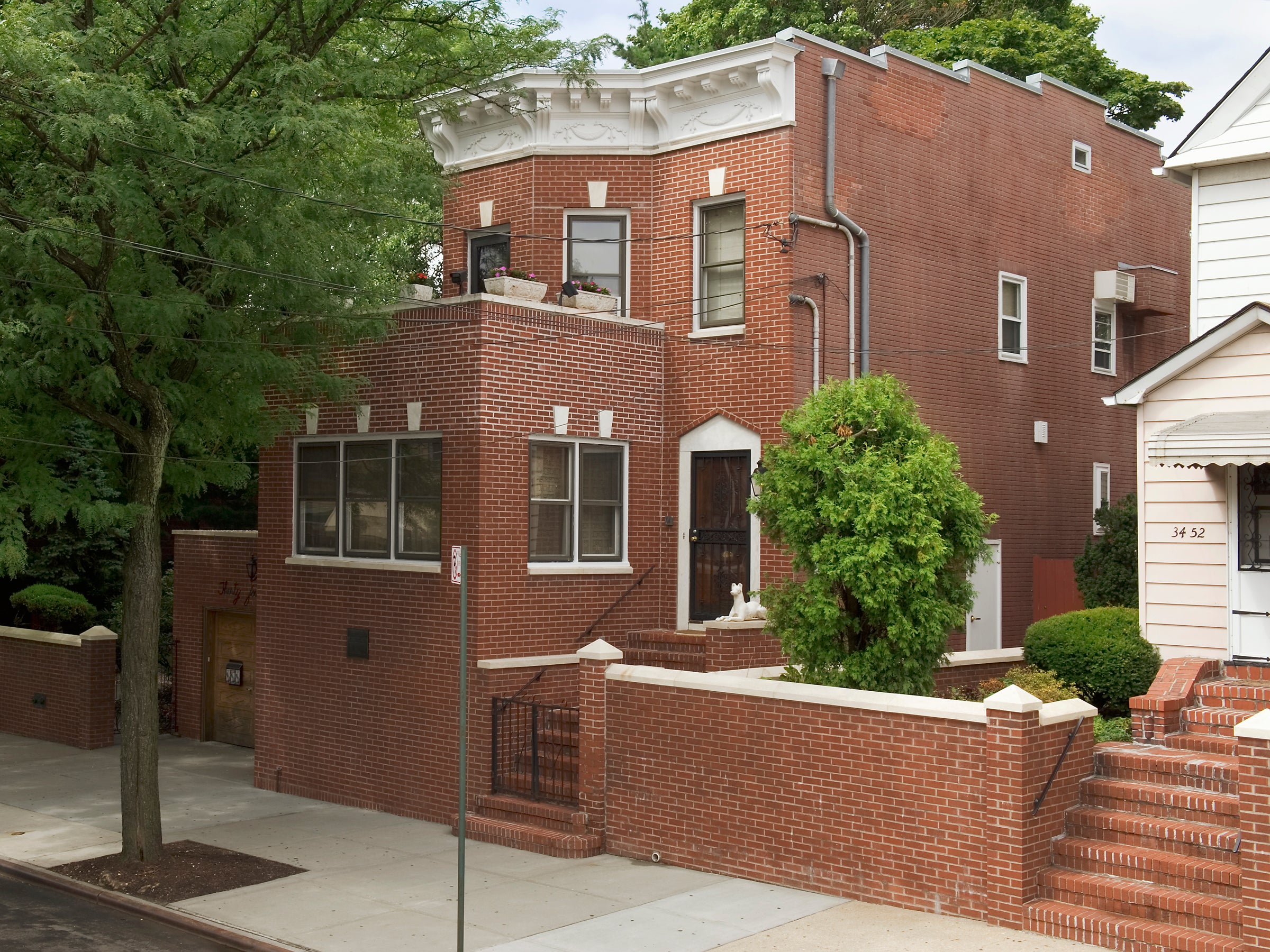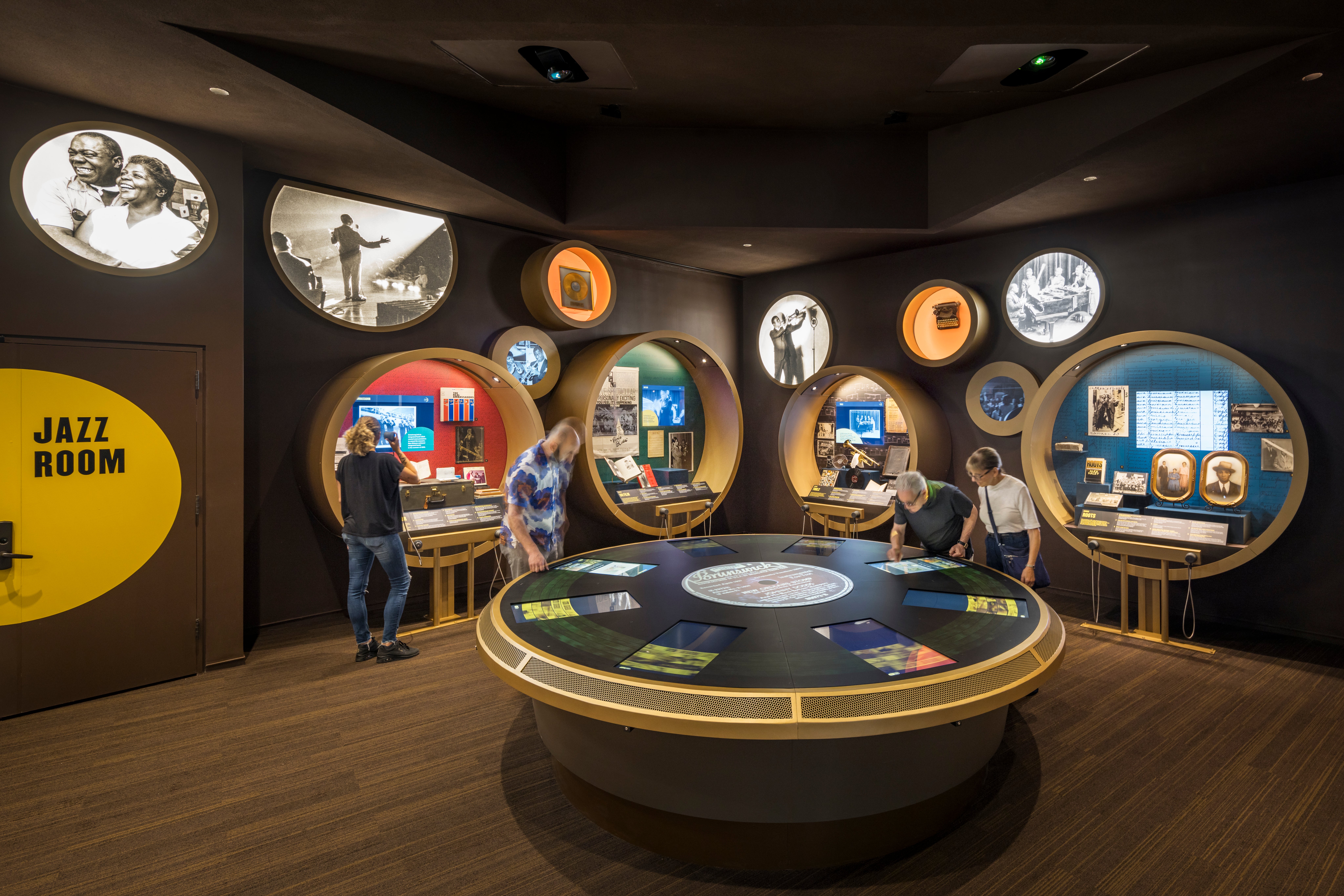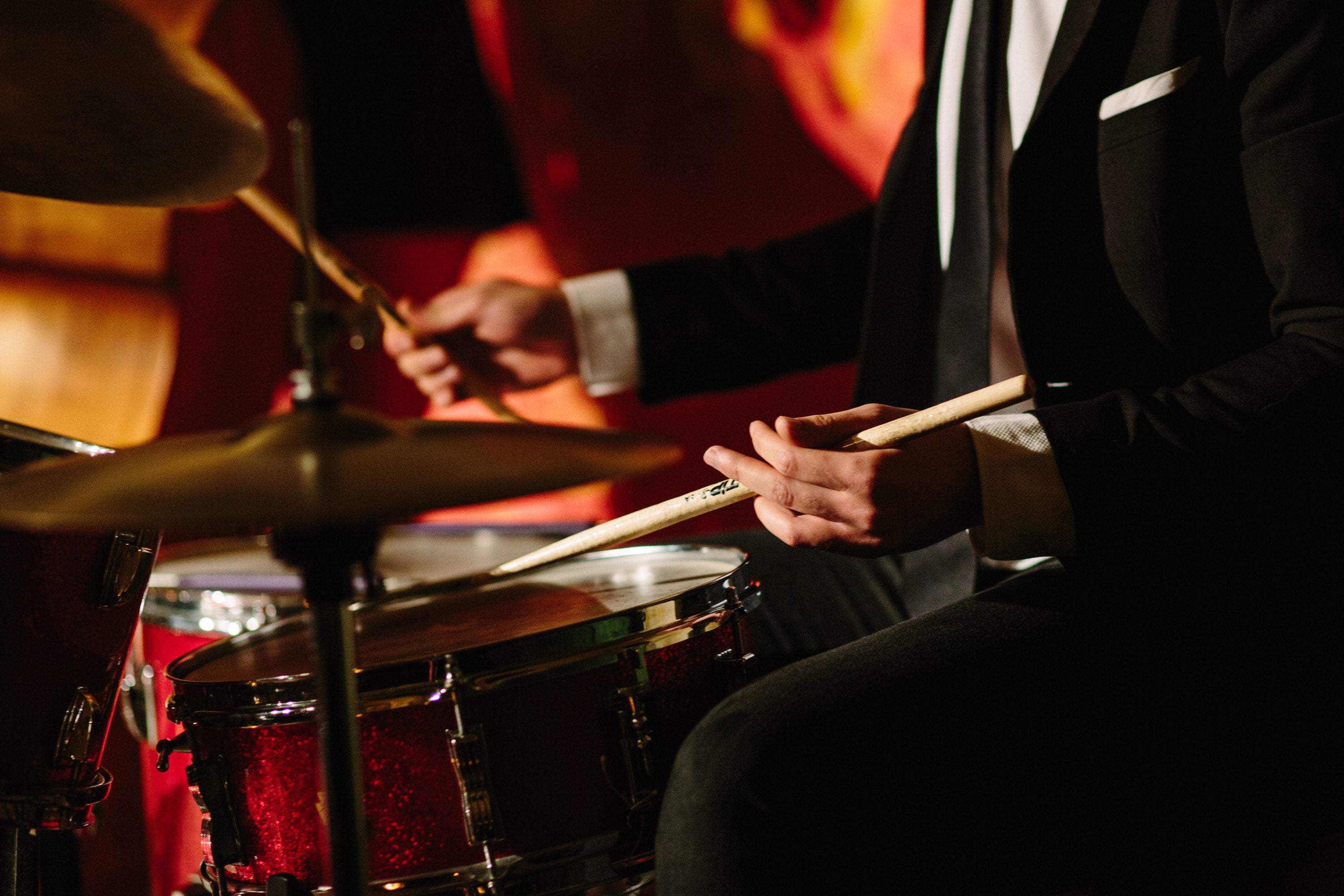Louis, lounges and left-field covers: How New York’s jazz scene is getting more accessible
Tamara Hinson checks out the new home for Louis Armstrong’s 60,000-piece archive, alongside the Big Apple’s coolest jazz bars and clubs


Your support helps us to tell the story
From reproductive rights to climate change to Big Tech, The Independent is on the ground when the story is developing. Whether it's investigating the financials of Elon Musk's pro-Trump PAC or producing our latest documentary, 'The A Word', which shines a light on the American women fighting for reproductive rights, we know how important it is to parse out the facts from the messaging.
At such a critical moment in US history, we need reporters on the ground. Your donation allows us to keep sending journalists to speak to both sides of the story.
The Independent is trusted by Americans across the entire political spectrum. And unlike many other quality news outlets, we choose not to lock Americans out of our reporting and analysis with paywalls. We believe quality journalism should be available to everyone, paid for by those who can afford it.
Your support makes all the difference.Louis Armstrong drove around the block several times before setting foot in his new home in Queens, New York, in 1943. Keen to lay down roots after years touring the world with someone who often performed 365 nights a year, his wife Lucille bought the house months earlier, only telling her husband after signing the paperwork. Louis was confused – he lived in hotels and didn’t see the point of houses. When Lucille eventually flagged him down long enough to explain that this beautiful two-storey brick building was his new home, the world’s most famous jazz musician was gobsmacked; after all, his childhood home was a rundown property in a New Orleans neighbourhood so dangerous its nickname was the Battlefield.
It’s easy to see why he instantly fell in love with the 107th Street property, which has been immaculately preserved and is open to the public. Highlights include the Versailles-inspired bathroom with its mirrored walls and swan-shaped taps (Armstrong’s childhood home hadn’t had a bathroom, and Lucille spent more on this one than she’d paid for the house), the kitchen, with its lacquered, teal-coloured cupboards (Lucille’s Cadillac was the same colour) and their bedroom, lined with silk wallpaper. My favourite spot is the office, where Louis listened to music, corresponded with fans and made his beloved scrapbooks, filled with tour programmes. Sometimes, Louis stepped onto the office’s balcony with his trumpet to serenade the local children he’d become close to. An audio guide for the house reveals that the line “I hear babies cry, I watch them grow” from “What a Wonderful World” references these children, who’d carry his instruments inside when Louis returned from tours.

But the Armstrongs’ former home is no longer the only reason to visit this tree-lined avenue in Corona, Queens. In July 2023, the Louis Armstrong Centre opened across the street. It was built to house a 60,000-item archive (including 5,000 photographs, 650 recordings and five gold-plated trumpets) relating to the Armstrongs. It was previously stored at New York’s Queens College under the stewardship of the late Michael Cogswell, a firm believer that the collection deserved a more fitting permanent home.
Read more on New York travel:
Items currently on display (they’ll be rotated) include Armstrong’s FBI file (opened after he spoke out about racism), the passport used for his first UK tour, a brick from the Coloured Waifs Home for Boys, where Armstrong received his first music lessons, and a gold-plated trumpet given to him by King George V.
Regina Bain, executive director of the Louis Armstrong House Museum, says the size of the archive and the growing popularity of Armstrong’s former home meant the new centre was long overdue: “A house is an intimate space, and you can only have a certain amount of people in that space. There’s an energy around the Armstrongs’ legacy, and we needed more space for that. The legacy is huge.”

Proof of which is the buzz generated by the centre’s opening. Ms Bain recently visited Bahrain with the US State Department to discuss a collaboration with the Bahrain Jazz Festival, and she’s in touch with an organisation planning an exhibit about Armstrong’s performances in Germany during the Cold War. Louis would have undoubtedly approved, given his wanderlust. The new centre’s most popular area is an interactive zone where visitors use touchscreens to learn about his life. Content relating to his travels includes photos of performances in Japan, Egypt and the Vatican. More unusual venues included an aeroplane above the Swiss Alps, the setting for a performance by Louis in 1956. My favourite photo is a colourised picture of Armstrong performing for his wife in front of Egypt’s Great Sphinx.
There’s so much opportunity for jazz to evolve here
He’d be pleased to know that jazz is still New York’s soundtrack. I hear it on the subway and in Central Park. At the Museum of the City of New York, one of the most popular exhibits is the mixed media collage, Jammin’ at the Savoy, by artist Romare Bearden, whose inspiration was the city’s jazz scene. Diversity is evident in New York’s jazz lounges, too. For example, a recent resident musician at one of New York’s hippest jazz venues, Café Carlyle at the Carlyle Hotel, was Isaac Mizrahi, a designer who’s also an accomplished jazz singer. “Recently, New York’s jazz scene has definitely been influenced by other genres, like emo and country music,” says Mizrahi. “I cover a Billy Eilish tune and there are jazz bands doing Johnny Cash and Dolly Parton covers.”
At legendary jazz venue The Django there are pounding drum solos alongside trumpets and saxophones, and at Brooklyn’s hip Williamsburg Hotel, the weekend jazz brunches attract jazz fans old and new. A highlight of my night at the Aman Hotel’s swanky Jazz Club is the jazz version of The Killers’ “Mr Brightside”, performed by Brian Newman, a six-time Grammy Award nominee known as Lady Gaga’s trumpeter. His jazzed-up version of Nirvana’s “Lounge Act“ comes a close second. “There’s so much opportunity for jazz to evolve here,” says Brian. “As a genre, jazz is now much more accessible, from the understanding of its foundations to the discovery of its latest artists.”
Louis Armstrong, I suspect, would approve.

Travel essentials
Getting there
Play flies from London Stansted to New York Stewart International from £336 return.
Staying there
A double room at the Even Times Square South (ihg.com) starts from £213, room only.
Read more of our best New York hotel reviews
Join our commenting forum
Join thought-provoking conversations, follow other Independent readers and see their replies
Comments